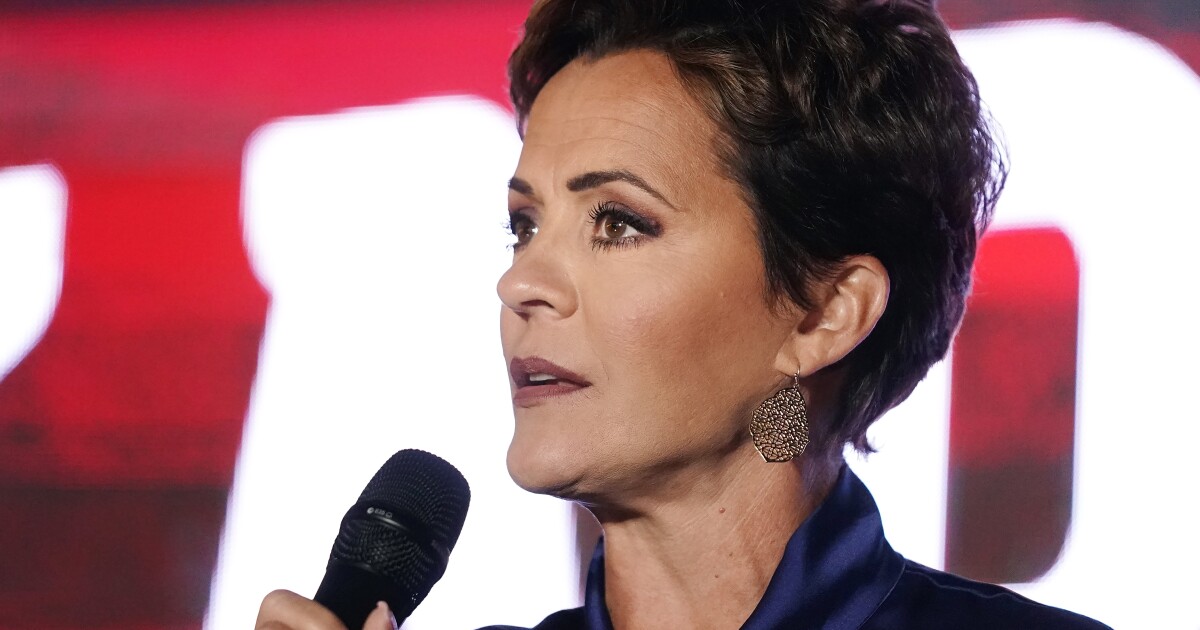

Failed gubernatorial candidate Kari Lake filed an appeals notice to overturn an Arizona judge’s decision to dismiss her election lawsuit challenging her loss to Democratic Secretary of State Katie Hobbs in the midterm elections.
In an appeals notice filed to the Arizona Superior Court on Tuesday, Lake challenged the dismissal of several counts that were thrown out by Maricopa County Superior Court Judge Peter Thompson over the weekend. In his decision, Thompson ruled Lake’s campaign did not have sufficient evidence to support her claims that the election was influenced by intentional misconduct that handed Hobbs the victory.
MARICOPA JUDGE REFUSES TO SANCTION KARI LAKE, SAYING CLAIMS WEREN’T ‘GROUNDLESS’
“I am standing up for the people of this state, the people who were done wrong on Election Day, and the millions of people who live outside of Maricopa County, whose vote was watered down by this bogus election in Maricopa County,” Lake told Steve Bannon on his War Room podcast on Tuesday.
Lake signaled her intent to appeal the judge’s decision shortly after her lawsuit was thrown out, claiming her “election case provided the world with evidence that proves our elections are run outside of the law.”
The Republican candidate also hinted toward claims that Thompson was biased in his decision, sharing a tweet that accused the judge of being influenced by a law firm representing Hobbs in writing his lawsuit dismissal. That tweet has since been deleted.
CLICK HERE TO READ MORE FROM THE WASHINGTON EXAMINER
Hobbs cited the tweet in her request to the judge to sanction Lake and her legal team for making more false accusations against Maricopa County election officials. However, Thompson ruled against Hobbs’s sanction request, noting that although Lake lost her case, her claims were not “groundless.” Lake was ordered to repay $30,000 in expert witness fees.
It’s not clear when the judge will make a further decision on Lake’s appeal, although the Republican noted in her filing that she will “seek direct review by the Arizona Supreme Court.”







